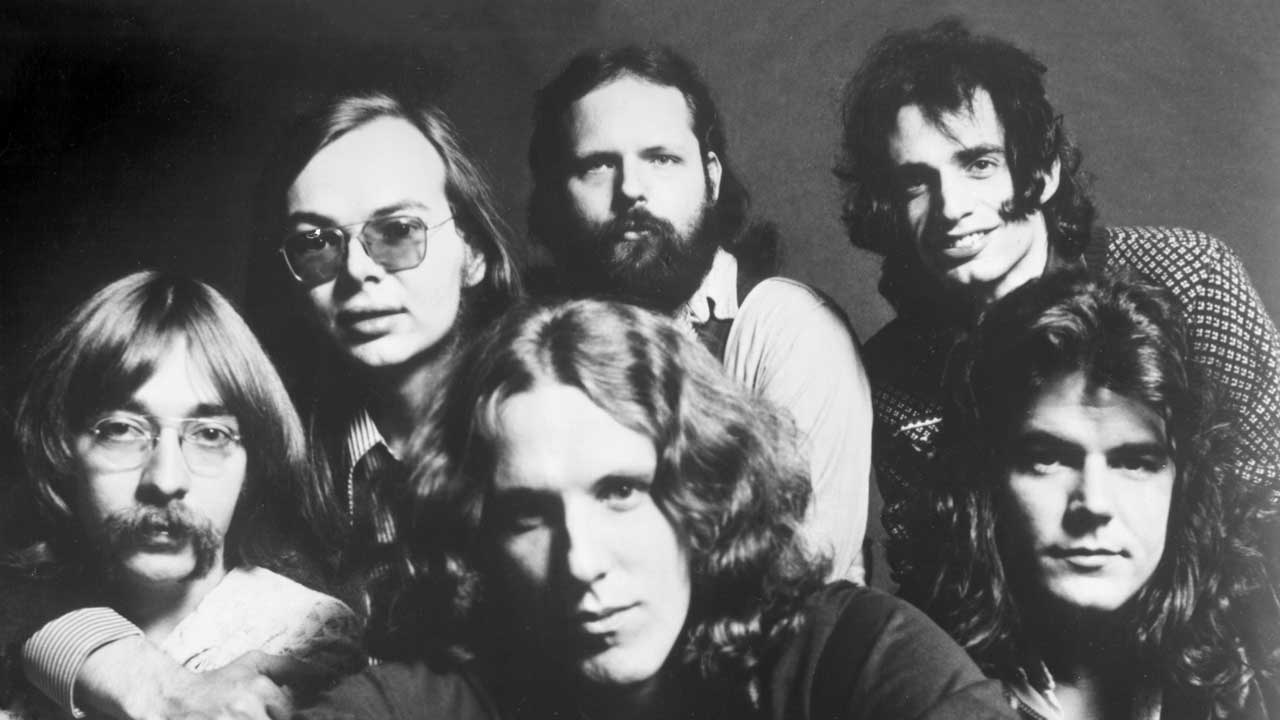Every Enter Shikari album ranked from worst to best
One of the most innovative and fearless British rock bands ever, Enter Shikari have released seven studio albums since 2007: we sort out the so-so from the sensational
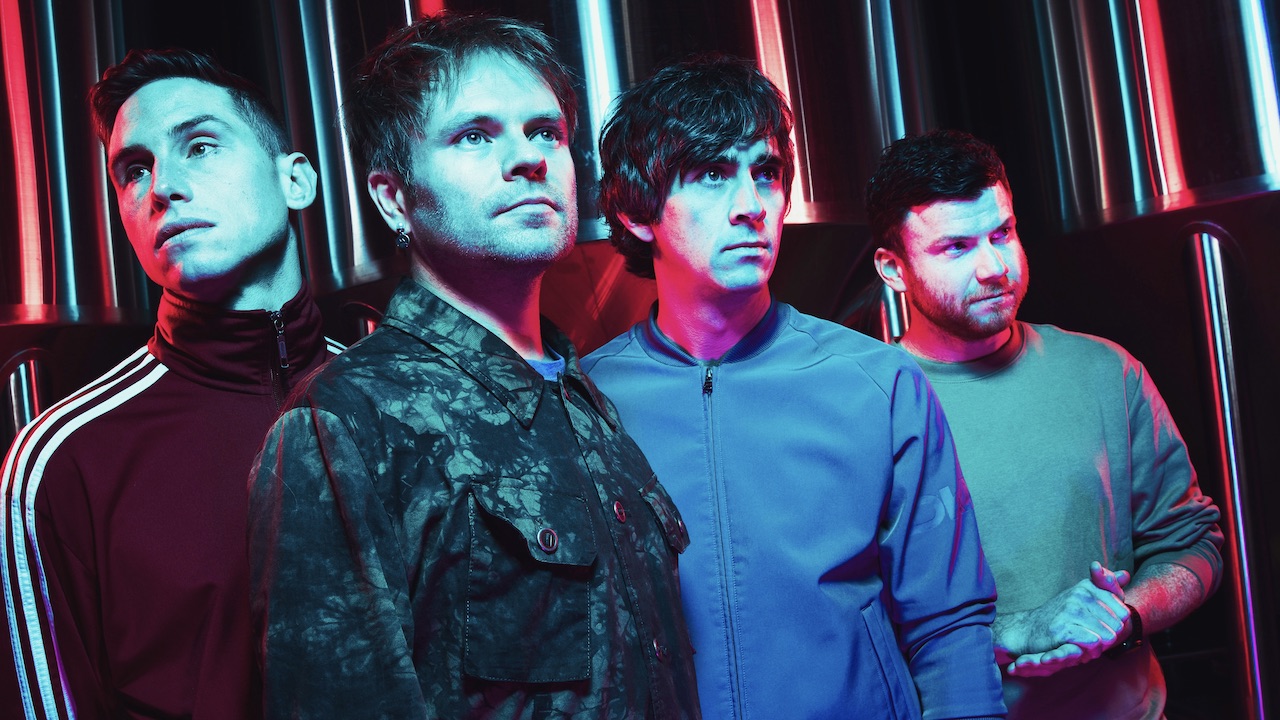
Select the newsletters you’d like to receive. Then, add your email to sign up.
You are now subscribed
Your newsletter sign-up was successful
Want to add more newsletters?

Every Friday
Louder
Louder’s weekly newsletter is jam-packed with the team’s personal highlights from the last seven days, including features, breaking news, reviews and tons of juicy exclusives from the world of alternative music.

Every Friday
Classic Rock
The Classic Rock newsletter is an essential read for the discerning rock fan. Every week we bring you the news, reviews and the very best features and interviews from our extensive archive. Written by rock fans for rock fans.

Every Friday
Metal Hammer
For the last four decades Metal Hammer has been the world’s greatest metal magazine. Created by metalheads for metalheads, ‘Hammer takes you behind the scenes, closer to the action, and nearer to the bands that you love the most.

Every Friday
Prog
The Prog newsletter brings you the very best of Prog Magazine and our website, every Friday. We'll deliver you the very latest news from the Prog universe, informative features and archive material from Prog’s impressive vault.
In the heart of St Albans, as you enter the top floor of the city centre’s museum and gallery, there’s a wall of portraits by the central staircase. On that wall, among the images of famous scientists, artists, poets, and politicians with local heritage, is a photograph of Enter Shikari. It’s one of the few not in black and white or illustrated because the subject is from hundreds of years ago. Going out on a limb, they’re probably the only figures on that wall to have screamed “You faaacking spaaannah!” on record too.
St Albans has good reason to be proud of its local boys done good. Coming together as kids to form Hybryd in 1999 and evolving into Enter Shikari a few short years later, the Herts quartet have gone on to become one of Britain’s most beloved bands.
You could try to whack a label on what they do, but nothing really sticks. Their music is fiercely independent in both operation and mentality, released through their own label Ambush Reality. As an unsigned band they headlined London’s famous Astoria in 2006, due to the enterprising buzz created via Myspace and legendary local shows. Their maverick, genre-defying style combines socio-political commentary with personal ruminations, covering issues as diverse as nuclear armaments and mental health. It has resonated with audiences in arenas and on festival stages around the world.
This is music that takes the temperature of its time, takes a stand, and dares to be different. Here to help guide you through it all, are their studio albums ranked from the worst to the best.

7. Take To The Skies (2007)

Something has to prop up the rest of the band’s records in last place, but that’s not to say that Shikari's debut album Take To The Skies is without its merits. Nor are there too many moments that should cause its much more experienced makers to cringe in retrospect. In fact, it’s a damn sight better than most music made by teenagers. This last spot is really only merited by virtue of the extent of the progress made since the heady days of 2007.
Comprised largely of rerecorded material first heard on the trio of EPs released between 2003 and 2004, the album’s stridently DIY spirit still packs a certain puckish charm (the triple isolated claps on fan favourite Sorry You’re Not A Winner, for instance). Take To The Skies may now sound painfully of its time, but even in the nascent seeds sown here there’s plenty of evidence of what would eventually blossom.
6. The Spark (2017)
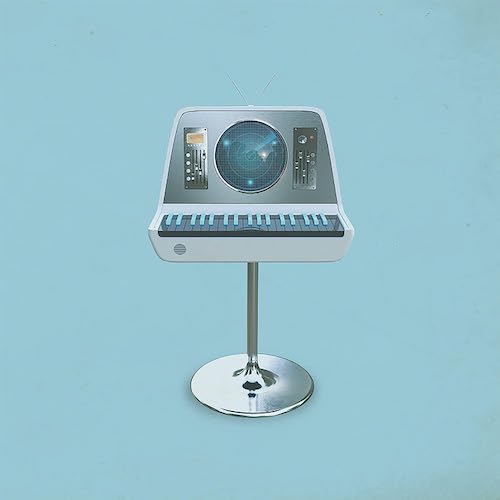
For frontman Rou Reynolds, The Spark may be the most personal album in the Shikari catalogue. Reynolds went as far as describing 2015 as his “year of hell”, and the record draws much of its inspiration from those testing times, evidently wrestling with some serious post-breakup blues and a debilitating anxiety disorder alongside his by now customary state of the nation stuff. It’s also one of the most radio-friendly releases in the band’s arsenal, with addictive earworms like Live Outside and the brittle beauty of Airfield amongst its many highlights. Shinrin-Yoku’s cinematic eeriness feels like a band still trying new things and succeeding too.
In the process of that attempt to appeal to a much broader audience however, some of the material feels designed for the arenas the band now call home and as a result The Spark just lacks a little of the freewheeling musical charm that made the preceding The Mindsweep such a perfect distillation of everything that the band does best.
5. A Flash Flood Of Colour (2012)
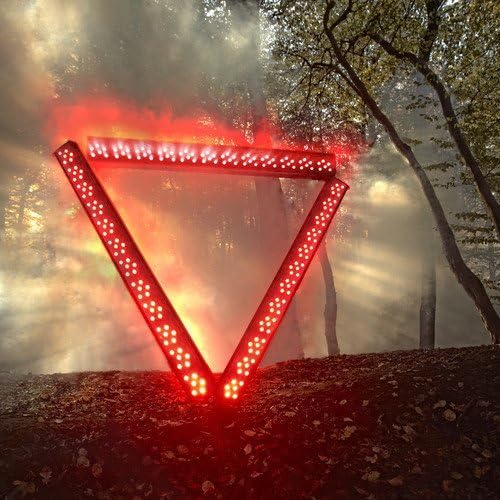
Amping up the spirit of activism debuted on Common Dreads and taking that record’s disregard for convention to a whole new level, Shikari’s third album, A Flash Flood Of Colour arrived with revolutionary zeal in 2012. Bursting with ideas, the band do a frantic hop, skip and jump to a new brainwave seemingly every few seconds. That makes for a breathless listening experience as songs come off like thrashy garage rackets one minute, then make a sudden left turn into head-spinning womps and skronks the next. Or in the case of closer Constellations, paring everything right back to the bare bones of spoken word-like vocals and minimal synths (before the anthemic coda comes in).
Outside of friendly rock press circles some harshly criticised the record’s political content as naively sixth-form and lumpen in its delivery, but those pot-shots miss the point entirely. Shikari are the first to take the piss out of themselves, as witnessed on the self-deprecating madness of Gandhi Mate, Gandhi. Even if the target isn’t always hit, their aim is true.
4. A Kiss For The Whole World (2023)
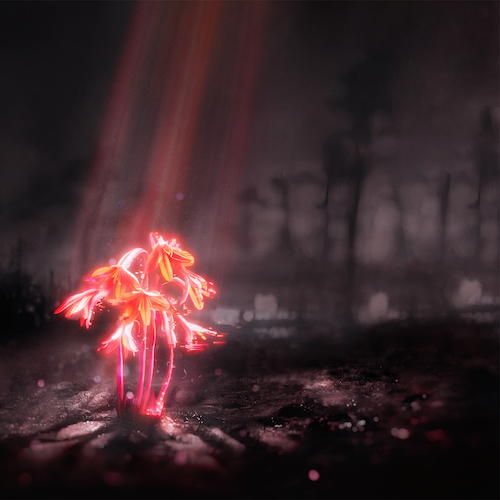
A celebration. A reaction. A defiant, positive affirmation of life after the devastation of Covid robbed the world of so much joy and colour. Shikari felt the sting of that as sharply as any. Their music is an experience that makes the most sense in a live setting, after all, and Nothing Is True…, their sixth album, was released a few shorts weeks after the first UK lockdown. Here then, is a band who felt the prolonged muzzling of live action hard. The subsequent creative freedom captured on record here sounds understandably ferocious. It’s also a document of the band at their most accessible, self-referential and refined. Yet they still casually reference Beethoven with a straight face, blast out bucketloads of heaviness, and drop in strings and brass alongside their customary brand of electronic wizardry. Fittingly, A Kiss For The Whole World topped the UK album charts, marking the first time the quartet have done so. That’s no mean feat seven studio albums and two decades into the game.
3. Common Dreads (2009)

Anyone expecting more of what was heard on Take To The Skies would soon come to realise that Shikari are not that band. Instead, following up a debut that made them one of the country’s most successful independent acts, they ripped up their own rulebook and explored all new avenues of artistic expression on Common Dreads.
There’s more melody and proper singing this time around. The kinetic energy and heaviness of four mates in a room making noise together is still the baseline, but they aren’t afraid to stray off into unexpected realms either. The influence of drum and bass and dubstep is more prevalent. Electronic playfulness establishes itself as a calling card for the remainder of their output here too. Lyrics go for the throat and tackle socio-political issues, with a delivery equal to the task as Rou Reynolds stakes a claim as one of the most engaging frontmen of his generation. Upon release Juggernauts debuted on Zane Lowe’s Radio 1 show as the Hottest Track In The World, marking the start of a momentous rise that would fuel travels all over the world, taking in Warped Tour, Glastonbury, Download and shows in the United States, Australia, and Japan.
The latest news, features and interviews direct to your inbox, from the global home of alternative music.
2. Nothing Is True & Everything Is Possible (2020)
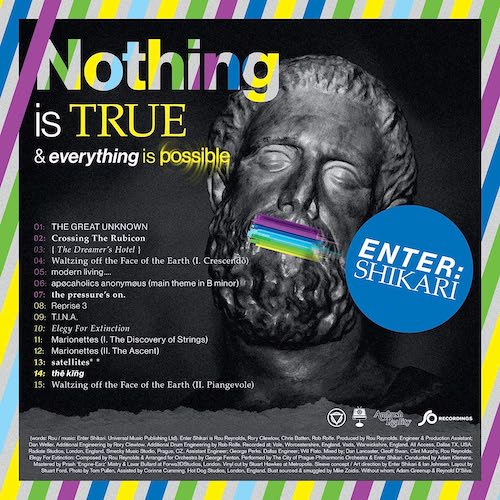
It says everything about how fearlessly self-possessed Shikari are at this point in their story that production on Nothing Is True… is handled entirely by Rou Reynolds. The ambition at every turn is that of a band emboldened by their collective achievements and abilities too. The four-minute classical interlude of Elegy For Extinction, the legitimate pop smarts of Crossing The Rubicon, and the dystopian carny vibes of Waltzing Off The Face Of The Earth (I. Crescendo), are just three examples of Enter Shikari fully embracing their every experimental desire. Even those song titles speak volumes. This sixth album feels like a highlight reel, capturing the band’s brightest impulses. It’s just a shame they missed out on what would’ve been a richly deserved victory march showcasing it all on the road right after.
1. The Mindsweep (2015)
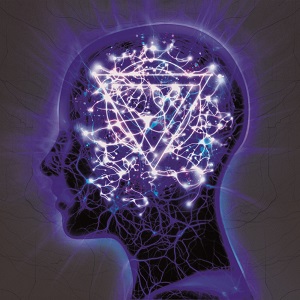
Since day dot Enter Shikari have always fought the good fight. On the majesty of The Mindsweep we’re told that this time the “fight is for humankind”, as the maelstrom explodes into action. Across all 12 tracks the quartet are in prime creative condition, landing blow after knockout blow making for a record that drips with confidence and conviction. Musically, that plays out in a myriad of ways, ranging from the delicate (Dear Future Historians) to the outright deranged (There’s A Price On Your Head). How many other bands could write a protest song prophesizing about the dangers of privatising the NHS, and make it sound both furious and fun? Somehow the Anaesthetist does just that.
On the bookending The Appeal & The Mindsweep parts I and II, Rou is in gloriously grandstanding flow, as the band weave intense atmospherics around his desperate pleas. By the end of the album, everything collapses in an exhausted heap, the result of all the kitchen-sink sonic chaos, complete with one final tip of the hat to Sorry You’re Not A Winner for good measure. It’s a timely reminder of where they’ve come from, as the distance between there and here is remarkable, representing a band at the peak of their powers, surveying everything before them.
Formerly the Senior Editor of Rock Sound magazine and Senior Associate Editor at Kerrang!, Northern Ireland-born David McLaughlin is an award-winning writer and journalist with almost two decades of print and digital experience across regional and national media.
